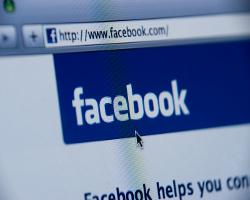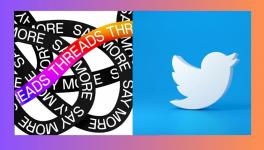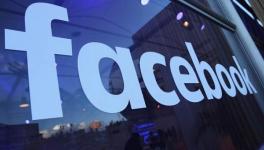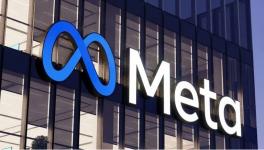The Trojan Horse of Free Basics
Facebook is running a high profile, misleading campaign, using full page advertisements, blocks of TV time, hoardings, and Facebook itself. This campaign, estimated to cost more than Rs. 400 crore, is promoting Facebook's private, proprietary platform called “Free Basics” and calling its opponents as anti-poor. In India, Facebook has tied up with Reliance Telecommunications for offering this platform. The Telecom Regulatory Authority of India (TRAI) has stayed the Facebook-Reliance proposal for now, and issued a Consultation paper on whether telecom operators can offer differential rates for data while connecting to different websites. The Facebook campaign is obviously an attempt to influence this consultation.

Image Courtesy: Flickr.com
An unlikely alliance of activists, academicians, start-ups and techies have mounted a visible and an effective counter campaign. The Free Software Movement of India has had sit-ins, demonstrations, and various other forms of protests, particularly in Hyderabad and Bangalore. Activists have also launched popular on-line campaigns such as #SayNoToFreeBasics and #SaveTheInternet, which has generated a lot of support.
Facebook is not only vilifying all net neutrality supporters through its misleading campaign, it is also violating various provisions of Indian laws and codes. Facebook's name of the platform – Free Basics – is an attempt to use the common meaning of the term free, basic internet and confuse the people. This is a violation of the existing advertisement codes in the country and against provisions of the Consumer Protection Act. Free Basics is a similar violation, perhaps fuelled by the belief that Facebook is anyway not answerable to Indian laws.
Facebook has consistently refused to face any legal proceedings in India, claiming to be an American company. As the Delhi High Court case brought out, it also does not pay any taxes on the huge revenue it earns in India. If Facebook really wants to participate in India's development, its first step should be to start paying taxes here and be answerable to Indian laws. Without this, it has no locus in India's policy making.
What is net neutrality and why is it important?
Today, the Internet has nearly a billion websites. This means that out of the 3.5 billion users of the internet, on an average, 1 out of 3.5 of such users also run websites and offer services. The internet is not just about our surfing the internet as passive consumers of websites and apps, but also very much a vehicle for us to reach out to other netizens.
The reason that the internet, has become such a powerful force for change in such a short time, is precisely because anybody can connect to anybody else anywhere in the world, not only to receive, but also to provide content. We are using content here to cover both web content or web services. All that is required, is that each side – receiving or providing content -- has access to the internet. Once we have connected to the internet, there is zero cost to offer or receive content. Tim Wu, the father of net neutrality, has written that keeping the two sides of the internet free of gatekeepers has generated this huge burst of innovation.
This is what has made the internet, as a platform, so different from other mass communications platforms, such as radio and television. Essentially, it has unleashed the creativity of the masses; and it is this creativity we see in the hundreds of millions of active websites.
All this would stop if the Internet Service Providers (ISPs) or Telecom companies (Telcos) are given the right to act as gatekeepers. This is what net neutrality is all about – no ISP or Telco can decide what part of the internet or which websites we can access.
What platforms such as Facebook would like to have, is that people visit only their websites. Free Basics is a platform controlled entirely by Facebook that will offer access to Facebook, and a few other websites that are its partners. Instead of all the sites that we visit and search seamlessly today, such a platform will be an enclosed Internet – a walled garden -- consisting of only Facebook and what it chooses to give us.
When Facebook claims that it is not violating net neutrality, it is providing its own definition of net neutrality. Its claim is that since it does not discriminate between any website or platform that is on its Free Basic platform, it is not violating net neutrality. The point is that the Reliance-Facebook tie-up proposes to block all sites except the few that on its Free Basics platform. Such a data service provides only a few sites out of the one billion sites that are available on the internet. If this is not a violation of net neutrality, we do not know what is!
The Department of Telecom has already accepted that net neutrality is a basic regulatory principle for the internet and network operators should not accept as gatekeepers. If we reject this principle, this will not only allow zero rating services such as Free Basics, but can also lead to other forms of discrimination. The network operators or Telcos can then demand money to speed up certain sites or slow down others.
Net neutrality wars and new cartels
The first net neutrality wars were between the telecom companies, who then had market power, as only they could provide access to their subscribers. They demanded money from websites for allowing websites to connect to their subscribers. This led internet companies and netizens combining to defeat the telecom monopolies and the acceptance that net neutrality as a principle should govern the internet. We are now seeing the second set of net neutrality wars. Big internet monopolies have discovered the virtue of freezing their competition out. They are now combining with the Telcos to form the cartels that will keep out their competition. Offering free data services for a few websites is one such strategy and known as zero rating services.
While it is claimed that Facebook is not paying any money to Reliance, there is no transparency in the private agreement that Facebook has made with Reliance.
Cartels between the telecom companies and a few global internet monopolies will lead to further concentration of economic power on the internet, marginalising innovations and most of the progressive media. Instead of the multiplicity of sites and views, the Internet would then rapidly become like cable TV platforms, with a bouquet of a few websites. This is what Facebook is attempting, carry a few hundred sites as against the 1 billion we have access to today, and call it the basic internet.
This Facebook campaign also shows us the kind of market power that Internet companies such as Facebook exercise today. Facebook has more than 125 million users in India, the second largest in the world after the US. All Facebook users in India have been given a completely distorted view of what Free Basics is, and a vicious campaign launched against all those who would like to preserve net neutrality.
The lie of a Free Basic Internet
Zuckerberg, in his full page ads that are running in various papers, claims that a whole bunch of public services such as libraries, hospitals, and schools have a similar architecture to what he is offering. A cheap version where anybody can access a limited set of free services and a more restricted version, where everything is available, but at a price.
Clearly, Zuckerberg has never seen a public library or a public hospital in his life. The biggest libraries in the world are public libraries. Public hospitals offer all services to all the people. They are structured as primary, secondary and tertiary services, so some specialised services are available only at secondary or tertiary facilities. Where there are good public health systems – unlike the US -- all health services are available to all citizens. Similarly, the best educational institutions in the world are public institutions, created to offer education as public goods.
Facebook earlier offered its controversial Internet.org and which is now re-branded as Free Basics. It is claiming that it is offering a free, basic internet as the platform is called Free Basics. Who has decided what constitutes what is a free and a basic internet? Mr. Zuckerberg? What gives him the sole right to determine what we as people need? What makes him think that connecting the Indian poor to Facebook will give her education and health? What makes him believe that the internet is a substitute for schools, colleges and hospitals?
The need for cheap access for data services
Instead of accepting the Trojan horse of Free Basics, we need to create the right set of policies so that data services are cheap and easily accessible. Public money -- from the Universal Service Obligation (USO) Fund -- is being used to set up the most expensive part of the internet, its fibre optic backbone. The government simultaneously has to create policies that will allow free, non discriminatory internet services up to a limit for all users, and TRAI has to create the right regulatory environment for net neutrality.
There are various ways of providing free or cost effective internet to the low-end subscribers. They could be provided some free data with their data connection, or get some free time slots when the traffic on the network is low. The 2G data prices can and should be brought down drastically, as the telcos have already made their investments and recovered their costs from the subscribers.
Unfortunately, the Prime Minister hobnobbing publicly with Silicon Valley majors is unfortunate when such crucial policies are being debated in the country. Modi's Townhall with Zuckerberg in the Facebook headquarters is perhaps one reason that Facebook feels emboldened to offer its controversial platform without any regulatory approval.
India cannot allow the internet to become a private monopoly. The danger of a private platform, instead of a public internet, is that it introduces a new kind of digital divide among the people. A large fraction of those who will join up such platforms, may come to believe that Facebook is indeed the internet. As Morozev writes (Guardian: 29 November 2015), “Digital divide”, today is “... about those who can afford not to be stuck in the data clutches of Silicon Valley – counting on public money or their own capital to pay for connectivity – and those who are too poor to resist the tempting offers of Google and Facebook.”
The British Empire was based on the control of the seas. Today, whoever controls the data oceans, controls the global economy. Silicon Valley's data grab is the new form of colonialism we are witnessing now. This is what we have to fight, not merely as netizens but as citizens.
Disclaimer: The views expressed here are the author's personal views, and do not necessarily represent the views of Newsclick.
Get the latest reports & analysis with people's perspective on Protests, movements & deep analytical videos, discussions of the current affairs in your Telegram app. Subscribe to NewsClick's Telegram channel & get Real-Time updates on stories, as they get published on our website.
























